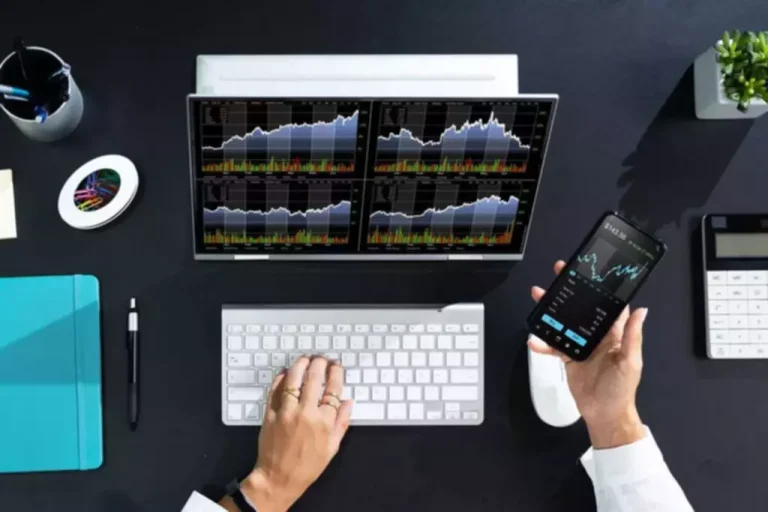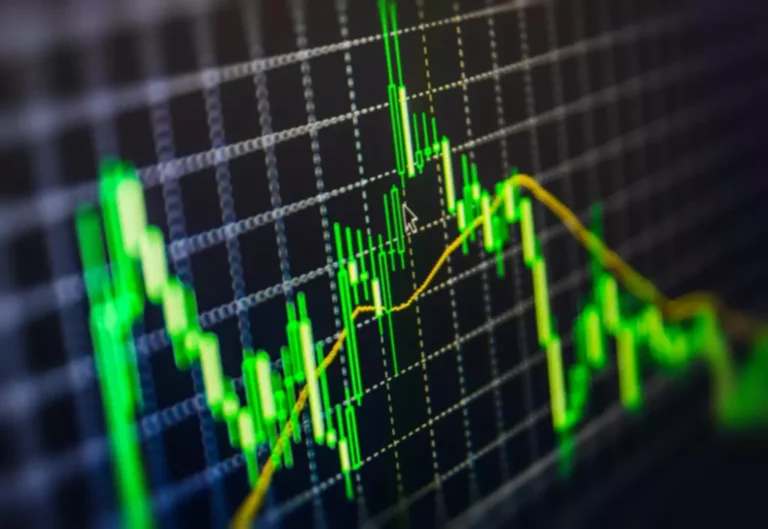Institutional buying and selling plays a crucial function in shaping the worldwide financial markets. Through their large-scale transactions, complicated methods, and entry to superior tools, institutional merchants drive liquidity, market efficiency, and worth discovery. As monetary markets proceed to evolve, institutional trading will stay a cornerstone of the financial panorama, adapting to new applied sciences and regulations whereas managing threat and maximizing returns. Institutional buying and selling refers back to the shopping for and promoting of economic property by large entities corresponding to banks, pension funds, insurance what is institutional trading companies or investment funds. Unlike retail buying and selling, which is carried out by individuals or small groups, institutional buying and selling handles large volumes of transactions, which allows it to significantly affect the markets. Derivatives buying and selling platforms enable institutions to commerce financial devices that derive their value from an underlying asset, similar to options, futures, and swaps.
Key Traits Of Institutional Trading
- This is a good way to get insights from different traders and study from their experiences.
- Institutional merchants have access to a broader range of economic instruments, together with stocks, bonds, actual property, futures, options, international trade, swaps, and different unique derivatives.
- Retail traders discuss with particular person merchants or small investors who take part in trading for speculative functions.
- One of the defining features of institutional trading is the use of algorithmic buying and selling (algo-trading).
The main goal of pension funds is to supply returns for his or her clients, who are usually staff saving for retirement. Due to their high-risk nature, hedge funds usually require substantial funds to invest. Their purchasers https://www.xcritical.in/ are sometimes companies, pension funds, or different institutional investors. These establishments commerce in massive volumes and have entry to advanced technology, research, and evaluation instruments that enable them to make informed funding choices. Institutional buying and selling is the process of purchasing for and promoting securities by giant monetary institutions such as banks, hedge funds, and pension funds. Essentially, this refers to the shopping for and selling of monetary belongings on behalf of large organizations such as banks, pension funds, or insurance coverage companies.
Distinction Between Institutional Trading And Retail Buying And Selling
This can result in significant modifications in prices of underlying belongings within the monetary markets. You’ll learn about the totally different strategies establishments use to make money and the method to apply them to your buying and selling. Plus, you’ll get access to a community of traders who are at all times ready to assist. Smart money is all the time forward of the pack, and following their footprint can enhance your possibilities of market success. By learning how good cash Volatility (finance) trades, you possibly can achieve an edge in the markets and enhance your buying and selling results. If you’re interested in short-term trading, you should follow day merchants.
Eligibility Standards For Itemizing On Institutional Trading Platform
This involves utilizing pc packages to research market information and execute trades routinely. One of the most popular kinds of institutional trading is algorithmic trading. Institutional buying and selling is an important aspect of the financial market that provides liquidity and facilitates price discovery. Institutional merchants can buy or promote massive quantities of securities without considerably affecting their prices. One of the explanation why institutional trading is important is that it supplies liquidity to the market. Now, let’s delve deeper into the world of institutional buying and selling and explore its key variations from retail trading.
What Are Some Institutional Trading Strategies?
The complete number of shares that get traded by the retail merchants are usually too few to make a big impact on the value of a safety. The retail traders, not like the institutional traders, have a larger bandwidth to spend cash on the small-cap shares. Institutional traders have the flexibility to invest in securities that generally are not available to retail merchants, such as forwards and swaps. The advanced nature and types of transactions typically discourage or prohibit individual merchants. Also, institutional traders usually are solicited for investments in IPOs. Fixed earnings platforms cater to the needs of institutional traders involved in buying and selling bonds, treasury securities, and different debt instruments.
In this publish, we’ll take a better take a look at institutional trading and the sensible money ways that establishments use to make worthwhile investments. We’ll additionally discover the various varieties of establishments and the strategies they make use of, and we’ll additionally take a look at how you can use this information to make knowledgeable funding selections of your individual. There are additionally tech companies that make buying and selling platforms for establishments. These corporations work with banks and asset managers to satisfy the needs of massive investors. Institutional traders use many superior strategies to make money and manage risks.
You may wonder if there are any dangers to buying and selling like “smart money.” And the reply is absolute. And fortuitously, there are lots of assets on the market that can allow you to get began. This is where they’ll look at things like monetary statements, economic indicators, and company information to get a sense of how a specific inventory is performing. Order circulate analysis entails analyzing the circulate of orders out there to determine potential trading alternatives. Algorithmic buying and selling involves utilizing laptop code to determine and execute trades based mostly on certain criteria.
They typically commerce with smaller capital and have fewer resources and fewer access to data than institutional traders. Retail merchants typically use leverage, which allows them to manage larger positions with a smaller amount of capital. Leverage may increase potential returns, nevertheless it also escalates the exposure to substantial losses. New technologies, shifting investor wants, and guidelines updates drive these changes. They will use artificial intelligence, machine learning, and blockchain.
Institutional trading platforms are superior software program techniques utilized by large-scale traders, such as financial institutions, hedge funds, mutual funds, and other entities with vital buying and selling volumes. The growing complexity and the necessity for fast execution in international financial markets have made institutional buying and selling platforms a crucial part of modern funding methods. Institutional merchants handle large-scale investments on behalf of organizations such as pension funds, mutual funds, insurance coverage firms, and exchange-traded funds (ETFs). Their substantial capital permits them to access a wider range of securities, together with preliminary public offerings (IPOs), futures, and swaps, which are often past the attain of particular person traders. They sometimes execute large block trades, often exceeding 10,000 shares, and may negotiate lower transaction fees as a outcome of quantity of their trades.
Institutional platforms present merchants with access to advanced instruments that aren’t out there on retail trading platforms. These tools include algorithmic trading, market-making methods, custom order sorts, and real-time danger evaluation features. Such tools are crucial for executing advanced trades and reaching optimal buying and selling outcomes. Institutional traders are skilled buyers representing massive entities, such as firms, monetary establishments, and government agencies.
Embracing these advanced buying and selling mechanisms allows for the exploration of market inefficiencies and the capitalization on momentary pricing anomalies, all while minimizing the trader’s footprint out there. Asset allocation varieties the cornerstone of institutional risk management, with the strategic distribution of investments throughout numerous asset courses designed to optimize returns while managing threat. This process entails continuous assessment and realignment, making certain every portfolio is provided to weather market fluctuations and aligned with the investor’s risk tolerance and time horizon. The funding in swaps, forwards etc. provides an edge to the institutional buyers. Such exotic instruments usually are not out there to retail traders often since institutional investors have the large funds wanted for such investments.
The convergence of experience, superior technology, and long-term investment views distinguishes institutional investments as a drive majeure in the theater of world finance. Institutional traders are outlined as merchants who engage within the buying and promoting of securities for the accounts that they handle for any institution or a bunch of individuals. Some of the most typical examples of institutional traders are mutual funds, pension funds, insurance coverage firms, and exchange-traded funds. These institutional merchants are capable of investing in securities that are generally not out there for retail traders.



